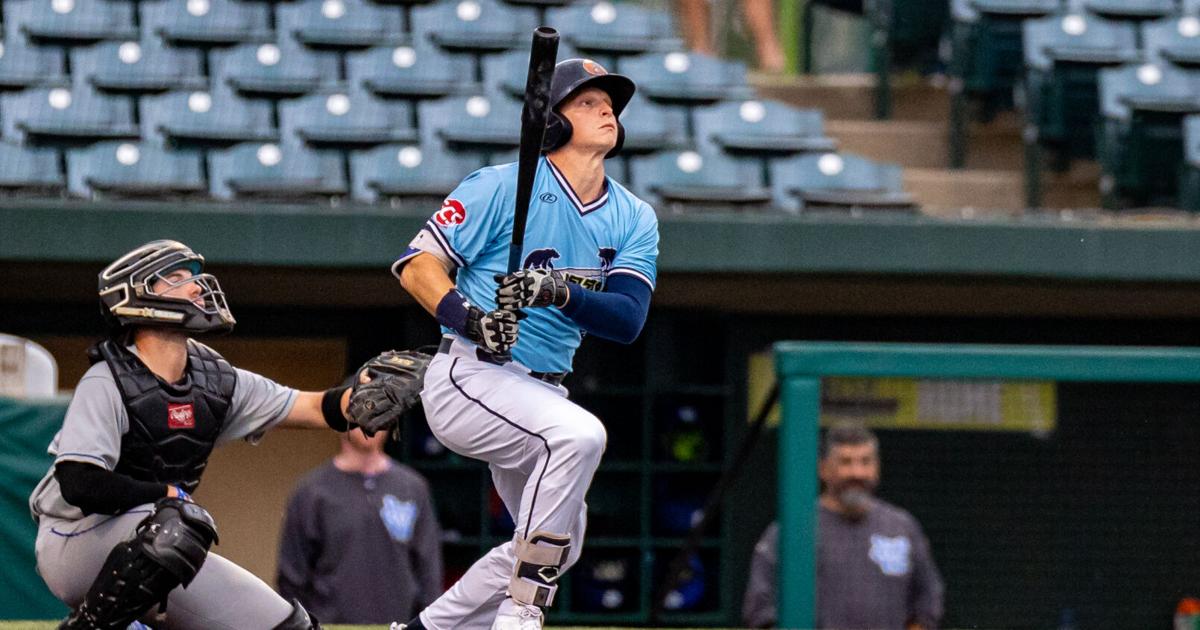Beautiful sorrow and the tail end of a new innings

“There are moments when the past has a force so strong it seems one might be annihilated by it.” — John Banville
We huddled over the crackling radio listening to the mellifluous Charles Fortune. For games played overseas, we caught the latest BBC World News. In the concrete of the Casbah, where not a blade of grass could be seen, we were at Lords, MCG or Eden Gardens. And in darkened corridors, during breaks in play, out would come a broom handle and tennis ball. If one could middle a ball with a broom handle, then my father surmised he would have a Barry Richards in the making.
I remember a solitary moment of formal coaching. The mighty Vince van der Bijl came to Centenary High in Asherville to do a stint. It was raining and so we used a classroom. He had hands like Johnny’s rotis and the hairstyle of a monk.
When Vince came out to bat at Kingsmead, Castle Corner roared: “Vince and his toothpick, Vince and his toothpick.” But here he was trying to show us how to take guard, swing a ball, keep bat and pad together.
It was a surreal moment.
Here we were, three or four of us, in a classroom with chairs and desks, listening to a man who we could only watch at Kingsmead from a segregated, narrow slit that the sunlight always missed:
“The landscape does not forget/ The conqueror’s stumbling hand/ Blocking the sunlight” — Faustin Charles
I got the sense that he too knew that this episode in a classroom showing boys how to bat could easily be a skit out of Monty Python. But he remained gentle and considerate as he bent his six-foot-three frame over me, one more time to keep my bat straight and steady my trembling hand.
As a teacher, my father was a man who lived inside the system. In life, he would make adjustments as he climbed the professional ladder. Suddenly the suit and tie were discarded to make way for a safari suit, long socks and comb, stopping short of wearing veldskoens as Afrikaners took a stranglehold on education.
Late in his career, he sat for the Voorbereidende (Standard Six) examinations. It was a prerequisite for a higher post. He learnt by rote a few opstels but was flummoxed when he saw the word beeste. He was sure it was cows, but was it bees? Ever the pragmatist, he wrote an essay on cows with wings.
My father’s approach was akin to James Scott’s “When a great lord passes the wise peasant bows deeply and farts silently.” My way was to throw fits of thunder and lightning, consequences be damned. Of course, consequences for his son’s rebellion would be bankrolled by my father’s bowing and scraping.
The redoubtable Professor Eddie Higgins captured this “infantile disorder” with acuity in a testimonial written in 1987:
“Mr Desai tends to believe in the totally redemptive power of politics and would do well to ponder Lord Shaftesbury’s remark that ‘Politicians are like chameleons and take the colour of a passing cloud’. Unfortunately many young sociologists, like Mr Desai, give their prime loyalty to audiences or values outside the academic community and fail to develop a professional interest in sociology, forgetting the line between sociology and ideology is often an extremely thin one… when Mr Desai realises that rhetorical sloganeering is no substitute for sober analysis and, furthermore when Mr Desai finally grasps that sociology is not the ammunition dump for the revolution, he will undoubtedly make progress as a sociologist.”
Oh. Bless Prof Higgins’ soul. May he still be bowling googlies to smug batsmen with infantile disorders.
The 1990s. Mandela was back from the Island. When asked about the imminent release of Mandela, Bill Athey, who was touring with the rebel Gatting squad, cynically asked, “Nelson Mandela? He can’t bowl can he?”
But Mandela was to negotiate the corridor of uncertainty with spin and guile that belied his nearly three decades of isolation. The ANC was not only unbanned, but it operated like a government in waiting. Apartheid cricket, through the maniacal work ethic of Ali Bacher, was cosying up to the new game in town.
What really happened behind the closed doors of cricket toenadering remains hotly disputed. What is undisputed is that the ANC, with the haste of a pinch-hitter, threw open the doors to cricket tours to foreign fields.
Tests and echoes
November 1992. The Proteas were pencilled in to play India.
There we were. Father and son, as if we were back in 1970 with Richards with that gait of nonchalance, slow dancing to the crease after lunch. My father, as was his careful way, packed a flask. He made his way instinctively to our place under the clock whose time had long run out. It was no use explaining that he could sit or buy a cup of tea anywhere.
The 1993 Cricket Annual reminded that the game was historic for a number of reasons: “It was South Africa’s first home Test since the 1969/70 season; It was the First Test between South Africa and India; It was the first Test to feature the video-assisted replay to enable a third umpire to make a better judgement in hairline decisions.”
The Annual missed the fact that the fourth day would be 16 November. It was the day the very first Indian indentured labourers arrived in Port Natal. My father, the historian, was quick to point that out. It bears remembering that the Durban Indian Cricket Union was formed in 1894 with teams like Yorkshire, Greyville, and Natal Government Railways Morning Stars.
The same year the “coloured” Krom Hendricks was denied a place in the South African side to play in England. But this history of Empire and racial exclusion was lost in the hoopla of the “Friendship Tour”.
My father and I laughed as a banner that proclaimed South Africa World Champs, 1970-1992, unfolded. Would the Springboks have beaten the rampaging West Indies of the mid-1970s? How would they have fared on India’s slow dustpans? One had come to expect this kind of warped thinking from the citizens of the Last Outpost.
Where did our loyalties lie? With people that looked like my father and me, or with those who cared not a toss that they denied a Springfield Kapil Dev from ever playing at the highest level? Should we not embrace the new South Africa, strengthening the forces that sought to level the playing fields? Or remain distant, dubious, aggrieved?
All these contradictory impulses coursed through the body as Kapil Dev limbered up. And… Jimmy Cook was gone first ball. The game ended in a grinding draw marked by Kepler’s 118 (266 balls) and Pravin Amre’s century on debut. Is this what we had waited 20 years for?
My dad spied other men on the stands with whom he had batt(l)ed through the 1960s and 1970s. They clasped hands. They spent a long time looking down at the empty pitch and then said goodbye. Men who played the game with such dignity, under conditions that mocked them. As I helped him into the car, little did we know that as Kingsmead was beginning a new innings, ours was nearing its end.
After the years apart my father and I were on guard but getting cosier. I was doing research on the history of black cricket in KZN. I would regale him with stories of the photographs and stories I was uncovering. More often than not his head would fall back, eyes shut, mouth slightly askew. Parkinson’s. Still, I would try to tease him back.
The co-authored Blacks in Whites: A Century of Cricket Struggles in KwaZulu-Natal would be finished just in time for the 2003 World Cup hosted in South Africa.
I took home a copy for my father. Wheelchair-bound. Legs skeletal. Shirt stained. It was hard to reconcile him in the grips of illness with the man always suitably attired and with impeccable manners. The book was 485 pages. Hardcover. His hands trembled.
Sometimes the weight of history can be too much to bear.
It is now 2023 and Kingsmead turns 100. My father is never absent. What have I learnt from our innings together? It is this.
Sometimes the greatest innings a man will ever play is from the sunless strip, bowed but unbroken, passive but dignified, standing among family and friends. A dogged opener, digging out the yorkers life serves up, padding away harsh decisions, an example for those still to bat.
Yes, my old man and his generation absorbed the worst the system could sling their way. And when they were finally out, they tucked their bats neatly under an arm and walked to the changerooms of the afterlife without rancour or remonstration. DM













